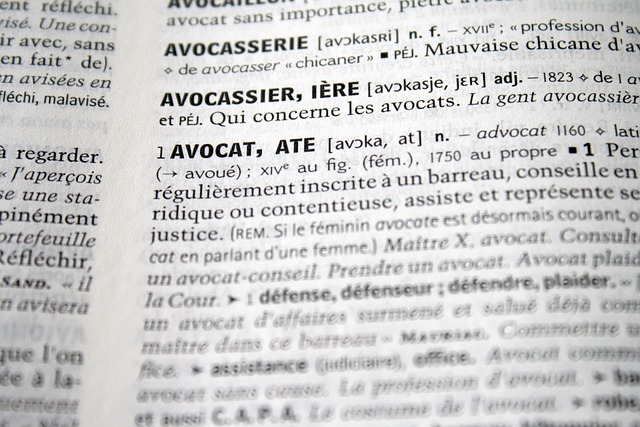In Oregon, grandparent rights are governed by specific laws (ORS Chapter 109) and a structured court process for establishing or modifying custody/visitation orders. Grandparents must navigate this system, which includes filing petitions, presenting evidence, attending hearings, and adhering to the judge's decisions based on the child's best interests. Understanding Oregon's court process is crucial for either self-representation or hiring a lawyer, with available resources like guides, workshops, legal aid organizations, and non-profits offering support, simplifying the complex system, and empowering grandparents to make informed decisions in family law matters.
In Oregon, grandparents’ rights are protected within a nuanced legal framework that navigates family law and child welfare. This article demystifies Oregon’s court system, providing an overview of grandparent rights, the types of cases involving them, and the step-by-step processes involved. We explore both self-representation and the benefits of hiring legal counsel. Additionally, we offer resources to support grandparents in their understanding and pursuit of court actions regarding their grandchildren, emphasizing the importance of knowing the court process in Oregon.
- Understanding Oregon's Court System: An Overview
- Grandparent Rights: Legal Framework and Basis
- Types of Court Cases Related to Grandparents
- The Process: Step-by-Step Guide to Oregon Courts
- Representing Yourself vs. Hiring a Lawyer
- Resources and Support for Grandparents in Oregon
Understanding Oregon's Court System: An Overview

Oregon’s court system, like many states, is structured with a hierarchy designed to handle various legal matters efficiently. At the foundation are district courts, which serve as the primary entry point for most civil and criminal cases. These courts deal with everything from traffic violations to felony charges. Above district courts sit circuit courts, which primarily hear appeals from lower court decisions.
For grandparents’ rights cases, which often involve family law issues, Oregon’s Circuit Courts are where proceedings typically begin. These courts have the authority to make or modify custody and visitation orders, addressing the needs of grandparents seeking legal recognition and access to their grandchildren. Understanding the court process in Oregon is crucial for grandparents navigating these matters, ensuring they are informed about the steps involved in such legal proceedings.
Grandparent Rights: Legal Framework and Basis

In Oregon, grandparent rights are carefully structured within the legal framework to ensure a balanced approach between family interests and the best interests of the child. Understanding the court process is crucial for grandparents seeking legal recognition and access. The state recognizes that grandparents can play a significant role in a child’s life, providing love, support, and stability, especially when parents are unable or unwilling to care for their children.
The legal basis for grandparent rights in Oregon is primarily found in Oregon Revised Statutes (ORS) Chapter 109, which outlines the procedures for establishing parental relationships and gaining custody or visitation rights. The court process involves filing a petition, presenting evidence of a significant relationship with the child, and demonstrating that granting grandparent rights would be in the child’s best interest. This often requires legal guidance to navigate the complex family law system, ensuring grandparents’ rights are protected throughout the proceedings.
Types of Court Cases Related to Grandparents

In Oregon, court cases related to grandparents typically fall under two main categories: custody and visitation rights. Grandparents seeking legal access to their grandchildren often navigate the complex understanding of the court process in Oregon to ensure their rights are protected. These cases can arise due to various circumstances, such as when parents are unable or unwilling to care for their children, or in situations where grandparents have played an integral role in the child’s upbringing and seek continued involvement.
The court process involves filing a petition with specific legal grounds, presenting evidence, and attending hearings. Understanding the Oregon court system is crucial for grandparents advocating for their rights. Through these legal avenues, grandparents can strive to maintain meaningful relationships with their grandchildren while respecting the family dynamics and legal frameworks in place.
The Process: Step-by-Step Guide to Oregon Courts

Understanding the court process in Oregon is essential for grandparents seeking legal rights or navigating family matters. Here’s a step-by-step guide to help navigate the complexities:
1. Filing Petition: The first step involves filing a petition with the appropriate Oregon court. This document outlines the specific legal action sought, such as seeking custody, visitation rights, or enforcement of existing agreements. It’s crucial to accurately complete and file the petition according to Oregon’s requirements.
2. Service of Process: After filing, the court will issue a summons, which is then served to all involved parties, including the child’s parents and any other relevant individuals. This ensures everyone is aware of the legal action and has an opportunity to respond.
3. Court Hearing: A date for a hearing will be scheduled, providing an opportunity for all sides to present their cases. Grandparents can gather evidence, testimony from witnesses, and legal documentation to support their position. The judge will listen to arguments and make decisions based on the best interests of the child.
4. Ruling and Orders: Following the hearing, the court will issue a ruling, which may include orders regarding custody, visitation, or other matters. These orders are legally binding and must be followed by all parties involved. It’s important to understand and comply with these court-mandated arrangements.
Representing Yourself vs. Hiring a Lawyer

When navigating the Oregon court system regarding grandparent rights, one crucial decision is whether to represent yourself or hire a lawyer. Understanding the court process in Oregon is essential, regardless of your choice. If you decide to represent yourself, it’s recommended to familiarize yourself with the legal terminology and procedures specific to family law cases. The state of Oregon provides numerous resources for self-represented parties, including guides and workshops that can help demystify the process. However, this path may be challenging, especially given the complex nature of family law.
On the other hand, hiring a lawyer who specializes in family law can offer significant advantages. Legal professionals are well-versed in the Oregon court system and can guide you through each step, ensuring your rights and interests are protected. They can also help negotiate with the other party’s attorney, draft necessary documents, and represent you in court. While legal fees may be a consideration, having an advocate on your side could potentially save time and stress in what is already an emotional and difficult process.
Resources and Support for Grandparents in Oregon

In Oregon, grandparents seeking legal rights or involved in custody battles can access various resources to navigate the complex court process. The state offers support services tailored for grandparents, ensuring they understand their legal options and obligations. Local legal aid organizations and non-profit groups provide free or low-cost legal assistance, counseling, and education specifically for grandparent cases. These organizations help grandparents interpret court orders, advocate for their rights, and make informed decisions throughout the process.
Understanding the Oregon court process is crucial for grandparents. The state’s judicial system has established protocols for family law matters, including grandparent visitation and custody. Legal professionals specializing in family law can offer guidance tailored to each grandparent’s unique situation. By leveraging these resources, grandparents can better grasp their rights, effectively communicate with the courts, and foster positive outcomes for their family relationships.














